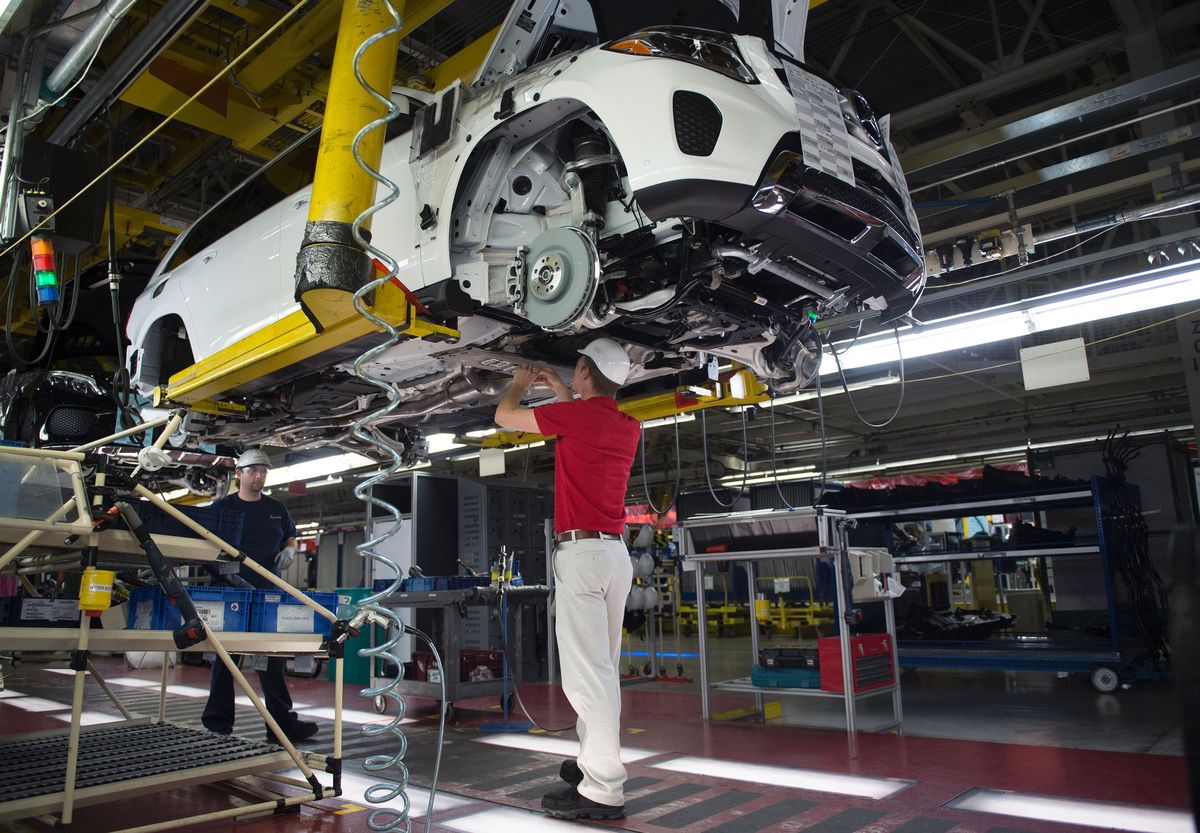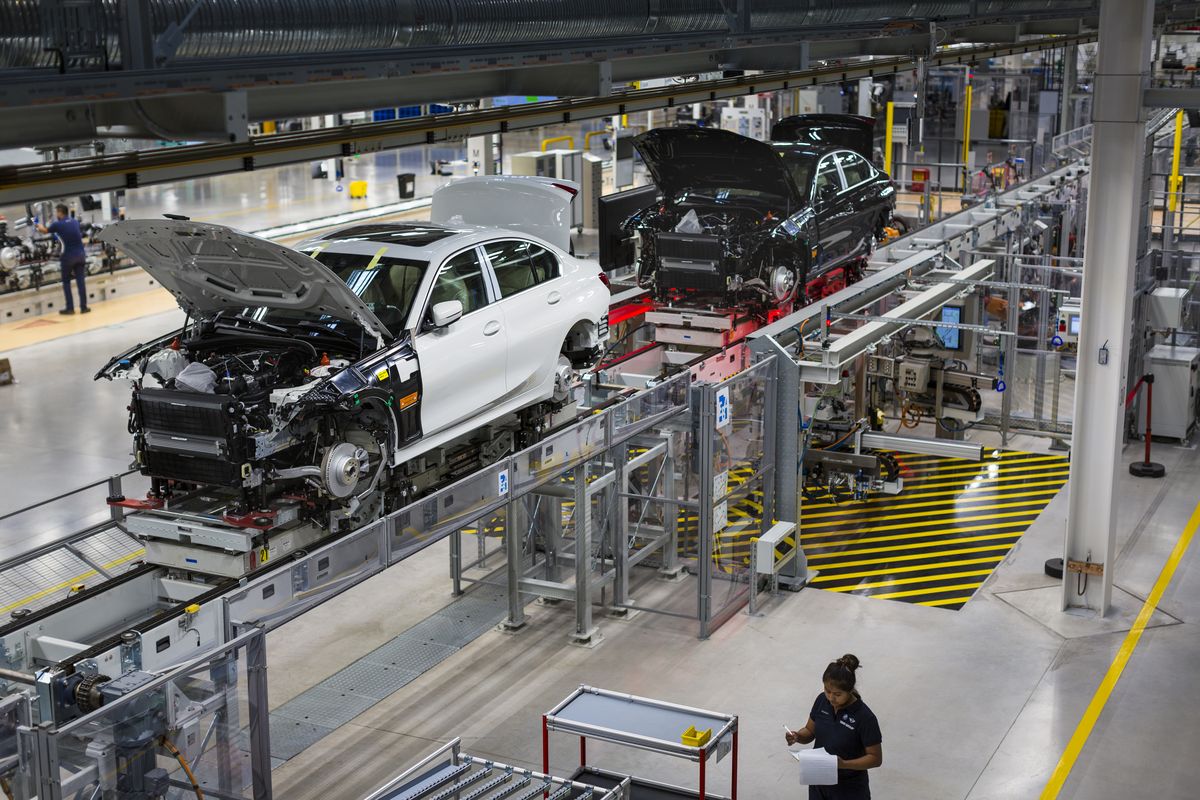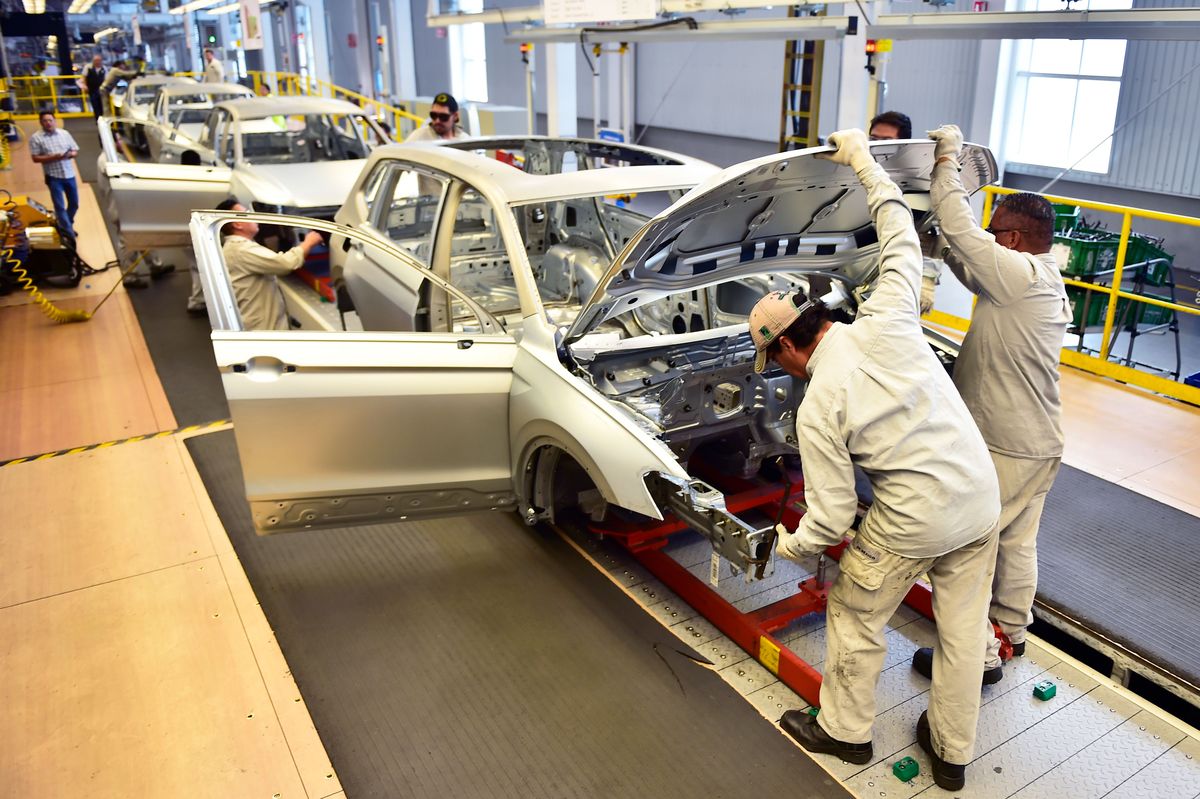It has only been five days since President Donald Trump a 25% tariff has been imposed on all imported vehicles entering the United States, prompting various responses from car manufacturers. Some companies such as Jaguar Land Rover and Audi have decided to halt their vehicle deliveries to the U.S., whereas others like Mercedes-Benz and BMW are taking an alternate approach for now.
This is due to Mercedes-Benz committing to cover the 25% tariff on 2025 model year vehicles, as stated in an official announcement from the company. Automotive News On April 7th, there won’t be an increase in the sticker price for 2025 model-year vehicles for U.S. buyers. While following suit to some extent, BMW has decided to cover the tariff expenses for Mexican-produced cars like the 3-Series, 2-Series coupé, and M2 models.

Mercedes-Benz spokesperson Michael Minielly stated that they are continuously monitoring the situation, assessing every possible option, and will make adjustments based on evolving market conditions and the competitive environment as necessary.
The decision to absorb tariff costs, at least initially, should not come as a shock for high-end carmakers such as Mercedes-Benz and BMW. These two German manufacturers enjoyed strong performances in the United States during 2024 and are probably reluctant to undermine their established local appeal. Moreover, Mercedes produces key models like the GLE-Class and GLS-Class SUVs, along with the electric EQE and EQS SUVs, in Alabama. This production within the country accounts for a significant proportion of U.S.-bound Benzes, AMGs, and Maybachs; notably, over 96,000 out of the total 324,528 passenger cars sold domestically in 2024 consisted of just the GLE and GLS variants. Fundamentally, this makes Daimler’s American operations less dependent on imports compared to numerous other international brands, so the impact of the 25% tariffs would affect fewer vehicles.

This also applies to BMW, which benefits greatly from robust domestic sales of its X-series SUVs and runs an extensive plant in Spartanburg, South Carolina, where these vehicles are manufactured. a grand total of 371,346 automobiles In 2024, crossovers sold in the U.S. amounted to 207,594 units. Among these, the X3 and X5 stood out as top performers, with sales of 68,798 units and 72,348 units, respectively.
Companies such as Audi and Jaguar Land Rover (JLR), which lack manufacturing facilities in the United States, have adopted an alternative strategy. Following President Trump’s introduction of tariffs, these companies halted their vehicle deliveries to the U.S. JLR led this move by stopping imports from April 6th onwards, closely followed by Audi on April 7th. Furthermore, every new Audi arriving in the U.S. post-April 2nd has been withheld from dealer distribution.
Since it already has 37,000 vehicles in stock in the U.S., Audi claims they can delay new shipments for up to two months, as reported. a German news outlet Volkswagen, which owns Audi, is encountering comparable difficulties since most of its U.S. shares come from Mexico. Consequently, this major German automotive corporation is reportedly dealing with these issues. considering a price increase for U.S.-bound models.

Asian automakers, so far, are approaching the tariffs from a different angle. Hyundai and Genesis have all agreed to keep prices level for at least two months, while Kia has yet to make an official ruling. Honda, Toyota, Subaru, and Mazda are also laying in wait to see how the situation develops. Nissan is even decreasing costs for certain of its models To assist present automobile buyers in finding an affordable option, a task facilitated by Nissan’s manufacturing plants in Tennessee.
President Trump’s statements regarding the original set of tariffs targeting autos were aimed at bolstering the strength of the U.S. automobile sector. Nonetheless, these tariffs have reverberated throughout the industry from both consumer and business viewpoints, resulting in various impacts. local brands such as Ford and Stellantis to offer staff pricing Special offers apply to specific qualifying models. It’s still uncertain exactly how beneficial these tariffs will prove for the Big Three manufacturers since sourcing crucial components from international locations persists as the usual approach for carmakers worldwide. This implies that vehicles assembled in the U.S. frequently incorporate significant proportions of imported parts—now all affected by President Trump's tariffs.
Interested in buying a car? Discover your perfect match on the MSN Autos Marketplace.